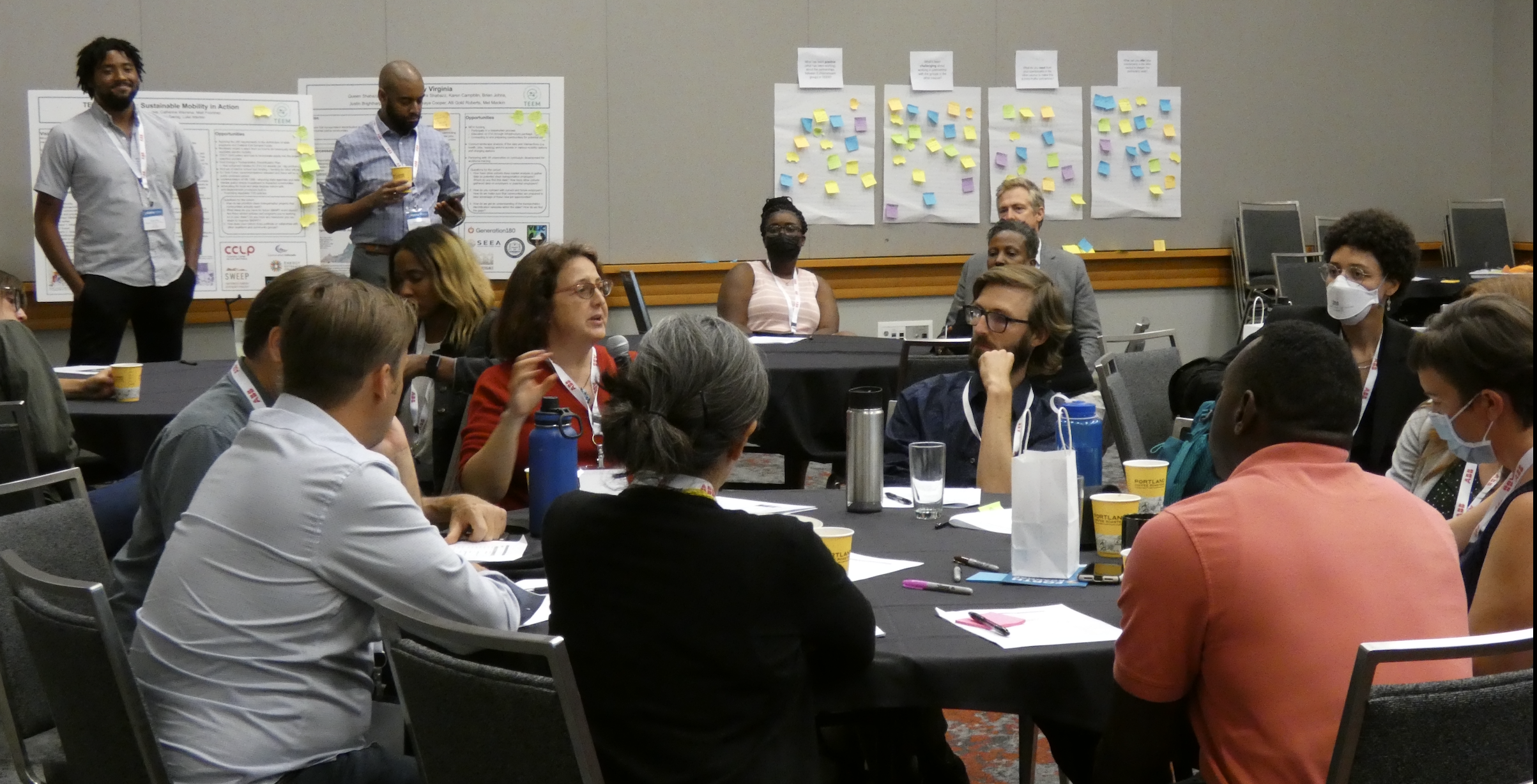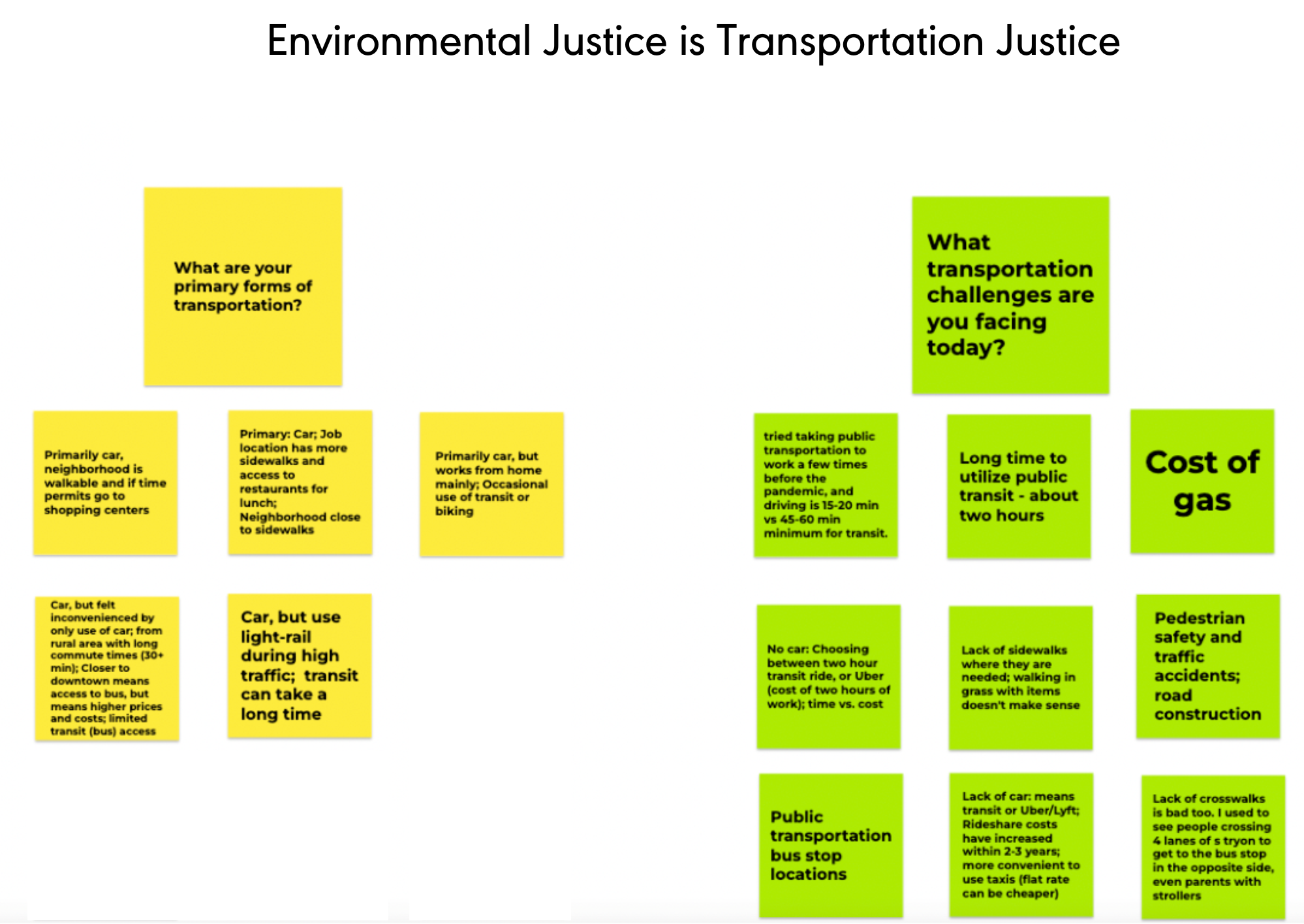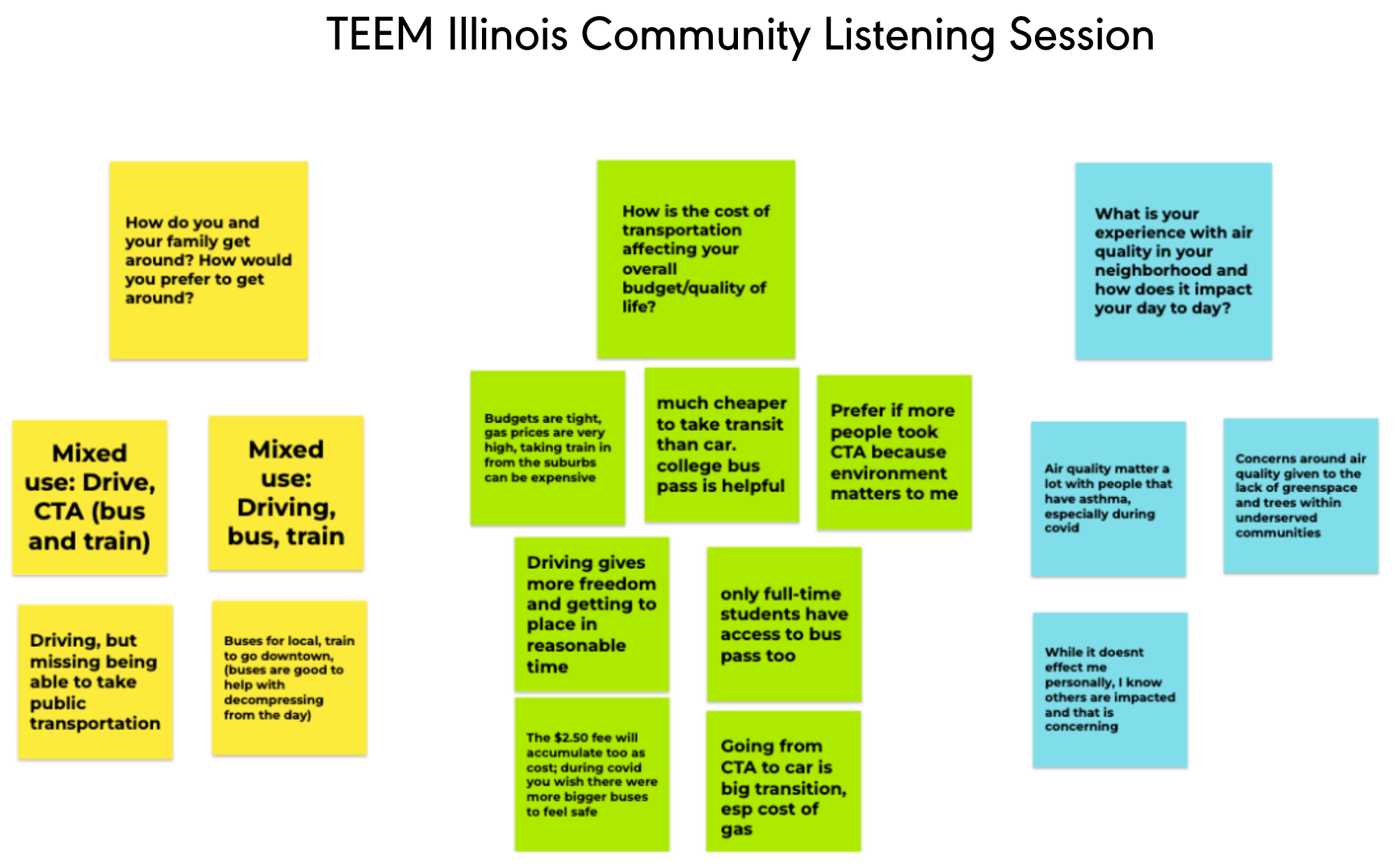Learning from Communities
By: Forth

The TEEM (Towards Equitable Electric Mobility) Community of Practice equips equity and environmental organizations to advance electric mobility in Colorado, Illinois, Michigan, North Carolina and Virginia. TEEM cohort members align their strategies with the priorities of the communities they work with.
The expertise of community members is critical. All too often, new projects and investments fail to adequately engage with affected residents.
While cities, planning organizations and transportation agencies send surveys and organize “community engagement” sessions, community input is often overlooked during the priority-setting phase. Given this context, TEEM states organized community listening sessions in 2022 to better understand priorities of the residents and to identify strategies of the State.
Across the five states, cohort members organized listening sessions, all of which resulted in conversations about community priorities, relationship building and state strategies. In 2023, TEEM states will use input from these listening sessions to develop state and national strategies. Here is a summary of some of the key lessons learned this year through these community listening sessions:
-
Setting the table: Who is in the meeting room shapes how community members engage.
For example, the presence of elected officials or professionals from transportation agencies may not be the most conducive environment for residents to share their concerns and visions; individuals may have little faith in these entities because of unkept promises.
For this reason, all TEEM states focused their listening sessions on residents, organizers and community-based organizations. For instance, the Colorado cohort focused on bringing members from grassroots community organizations, and the North Carolina cohort focused on residents of Charlotte.
Additionally, where a community meeting occurs also shapes how community members participate. Organizing meetings at spaces that are familiar and accessible to residents can help them feel comfortable sharing their ideas.
-
Inviting participants: Each TEEM state approached outreach differently. The Colorado cohort used their personal connections to invite grassroots organizers; the Illinois cohort identified four community-based organizations to support their outreach plan, and the North Carolina cohort used existing connections amongst member organizations to reach out to residents. In North Carolina, having a trusted partner on the ground as a TEEM cohort member was specifically effective for outreach.
Regardless of the method, it is important to adequately compensate community-based partners who spend their time and effort on outreach. In addition, we honor the time and input of community members who participate in listening sessions by compensating them, making arrangements for child care, and arranging food at events.

-
Maintaining transparency about data gathering: Transparency with community members about how data gathered at listening sessions will be used to inform the next steps is essential. Community members are too often asked to add sticky notes at planning workshops without knowing what happens next.
At all sessions, cohort members shared draft timelines of community events and informed the attendees how their input would be used to identify a project idea or a campaign.
In addition, we acknowledge and respect the preferences and hesitations of the community members about data collection. For instance, half a dozen participants for the North Carolina listening session answered ‘no’ to recording the listening session in a pre-event form. While the initial plan was to record the meeting and utilize video clips in the future, we decided not to record the meeting based on participant feedback.

-
Prioritizing the depth of conversations: Individual experiences are often dismissed as anecdotes in policy conversations.
Through TEEM listening sessions, we gained insights on specific neighborhood infrastructure changes and processes. For example, participants at a listening session shared about bus routes that were removed and the transportation barriers that ensued.
Similarly, at another listening session, we heard about the potential threats of displacement and gentrification resulting from investments in electric mobility and transit infrastructures. These insights lay the foundation for key questions that advocates and policy professionals can ask.
- Including new and electric forms of mobility at in-person community meetings: When community members are exposed to new and electric mobility options, they are more likely to consider it as a potential mode of transportation.
At the community transportation conversation organized by the Eastside Community Network (ECN) in Michigan, community members had the opportunity to test drive electric vehicles, ask questions and give feedback. This approach is an effective way to engage with community members and create an environment where residents can experience technologies that are being discussed.
These sessions highlight the organizational and individual capacity needed to organize listening sessions. From agenda-setting to community outreach, coordinating the logistics and conducting community engagement sessions, all require a significant amount of time and resources from cohort organizations and individuals. Clearly, this work cannot be done without an adequate budget built into the program and financial support from government agencies, foundations and funders.
In 2023, TEEM cohort members plan to continue with community engagement. This will involve engaging community members in their state strategy, and/or hosting additional community events. TEEM will continue to support the cohort states in facilitating more in-person community engagement next year.

